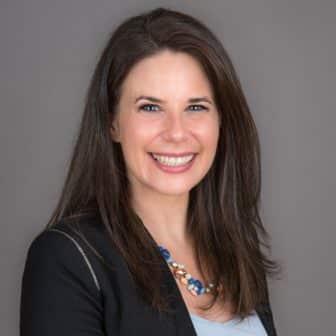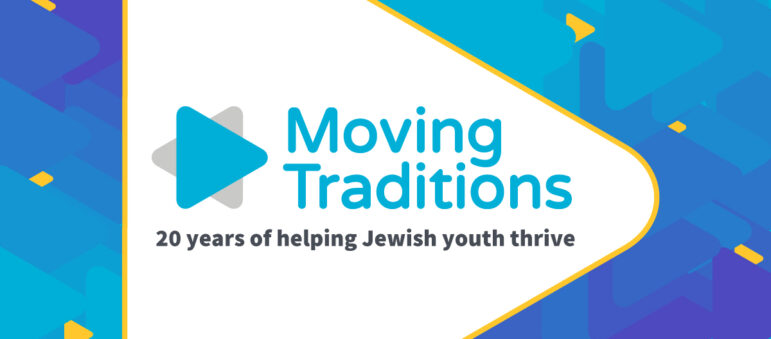By Shuli Karkowsky, CEO of Moving Traditions

At Moving Traditions, we often reference “Jewish time.” Most often, “Jewish time” means organizing our lives according to the sacred flow of the Jewish calendar. Sometimes, the term cheekily means being perennially late or taking hours to leave a party as we say goodbye to every person (half of whom are distant cousins).
Moving Traditions serves teens, which means we are keenly aware of “school and camp time,” governed always by the cadence of the academic year. As we wrap up the 2024-25 academic year, we wanted to take a moment to reflect and celebrate — a practice we’ve learned from Jewish time, with all its different meanings.
So… how was this year?
Three years ago, Moving Traditions launched a strategic plan that felt wildly ambitious. In four short years, we hoped to double the number of teens we reach annually, from 5,500 to over 10,000. This year, just three years into our four-year strategic plan, we are reaching 11,000 Jewish youth across North America with programs that help them pursue personal wholeness (shleimut), build caring communities (chesed), and a pursue a more just world (tzedek).
We are incredibly proud of the progress we have made. In a year that many Jewish organizations have been struggling, I have often been asked: what enabled Moving Traditions’ success? And while there are many answers (including our incomparable staff, our stellar board, and trusting and loyal funders), one big answer is: adaptation. Our team has been incredibly agile, responding in real-time to the ever-changing needs of teens. What does that look like?
Jewish teens are facing a dual burden, navigating the typical joys and challenges of adolescence while also facing rising antisemitism.
Prior to Covid, clinicians started seeing steep declines in teen mental health, which accelerated during and post-Covid. After October 7, Jewish teens had to navigate what the BeWell initiative at JFNA has started calling a “dual burden,” handling all the hard parts of being a teen while also facing rampant Jew hatred and the need to answer for events in the Middle East they don’t fully understand.
Last year, we introduced a pilot curriculum for Jewish identity and Israel with more than 20 participating pilot partners. It met the moment so well that it’s already been made a part of our standard Kulam curriculum, widely available to our partners. They tell us, “Moving Traditions’ Jewish Identity and Israel curriculum kept my 8th and 9th graders coming and coming back. It motivated parents to send their kids, and the kids were so grateful to have a space to learn and process about Israel, this year especially.”
Jewish teens are being offered leadership roles at camps and synagogues, but those institutions are missing out on opportunities to infuse those experiences with deep Jewish meaning.
Nearly every camp and synagogue we work with offers teens the opportunities to take on leadership roles as CITs or classroom assistants, but they didn’t have the right tools or curriculum to train those teens or with distinctly Jewish values. This year, our Kulam (7th-12th grade curriculum) added an additional track for teaching assistants (TAs)/madrichim and counselors-in-training (CITs), supporting the teens who are working with younger students. The program gives any supervisor of CITs or TAs an easy-to-use curriculum that covers topics including empathic listening, communication, gender codes, peer pressure, setting boundaries, giving feedback, consent, and the role of mentorship. All of this helps to support their emotional wellbeing and equip them to care for children, and it’s working. In fact, we have more camps — 60 of them! — using Moving Traditions programs in summer 2025 than ever before.
Still, and always, we’re helping young Jewish women raise their voices.
Helping young Jewish women support each other, build community, and raise their voices has been a tentpole of Moving Traditions since we were founded 20+ years ago. We began this year by welcoming jGirls+ Magazine into the fold, which joined other immersive leadership experiences like the Meyer-Gottesman Kol Koleinu Teen Feminist Fellowship and Kumi: Foundation (which are still accepting teen applications!). This year, for the first time, we recruited teens for all of these programs concurrently, and all three saw increased numbers of Jewish teen applicants. These programs help me remember that, even as teens face hardship and challenges, they are also ready to change the world for the better. And that it will always be the job of Moving Traditions to give those teens space, community, and skills to help them do so.
For all the teens and institutions using our programs, Moving Traditions is here to help them thrive. We are already thinking about what the next iteration of our goals might look like as we continue to grow and evolve beyond our 20th year (#NoLongerATeen!). There’s a lot more to come – please continue to stay connected with us, partner with us, and support our work to help Jewish youth thrive!

